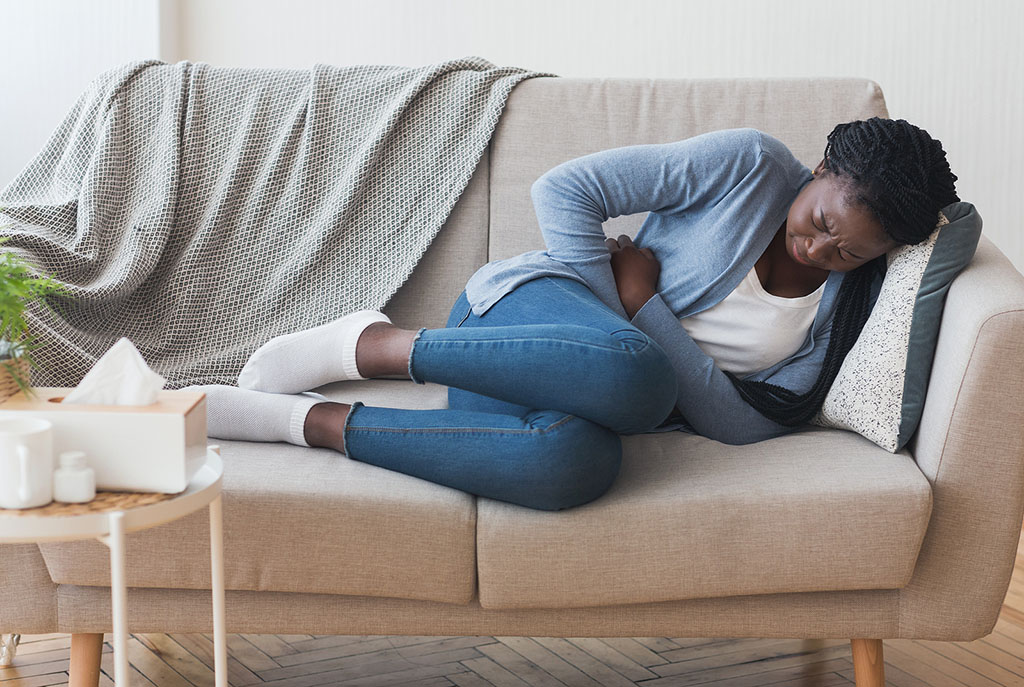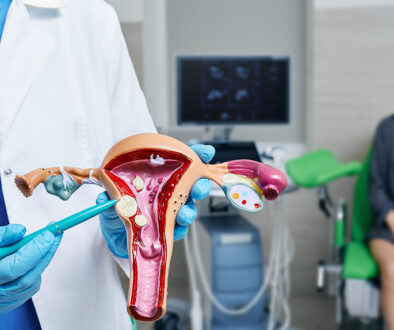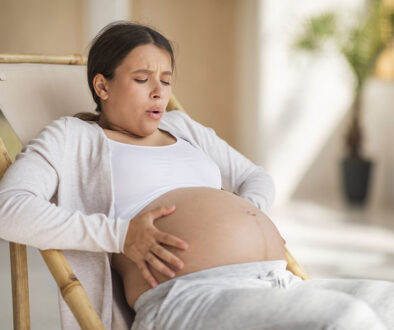Do You Have a Fibroid or Cyst? Signs, Types, & Treatment
Do you have abdominal pain and abnormally heavy periods? Maybe your menstrual cycle has become irregular and you’ve even noticed spotting between periods. These are some signs that you may have a fibroid or a cyst.
Because fibroids and cysts can affect your fertility and overall wellness, it’s crucial that you schedule an appointment with us when you start exhibiting these symptoms. Don’t put your life on hold! Working closely with us can help ensure you receive the timely treatment and relief you need. Schedule an appointment with us today.
How Can I Tell If I Have a Fibroid vs Cyst?
Often, you can’t. Both can cause pelvic pain and bloating. In addition, both are fairly common among premenopausal women. It’s only through a thorough evaluation from one of our leading gynecologists in Raleigh that you can discover the difference and learn the best course of treatment.
Fibroids and cysts are diagnosed through an ultrasound. Fibroids are typically found in or around the uterus and are solid, non-cancerous tumors that can be as small as a pea or as large as a baseball. Cysts are often found on the ovaries and are usually fluid-filled sacs.
Both conditions should be closely monitored because cysts and fibroids can affect your period, fertility, and sometimes cause painful intercourse.
For Comparison: Signs of Fibroids vs. Cysts
| Fibroids | Cysts |
| Can cause pelvic/abdominal pain | Can cause pelvic/abdominal pain |
| Benign (non-cancerous) tumors | Fluid-filled sacs |
| Typically develops in or around the uterus | Typically develops around the ovaries |
| Can be affected by hormone levels | Can be affected by hormone levels |
| Can cause pain during sex | Can cause pain during sex if the cyst ruptures. A ruptured ovarian cyst requires immediate medical attention. |
| Can cause heavy periods | Can cause heavy or irregular periods or “spotting” between periods |
If you want to know more about fibroids, check out our earlier article that answers some of your frequently asked questions.
What Type of Fibroid vs. Cyst Do I Have?
Once we’ve determined whether you have a fibroid vs a cyst, we’ll conduct a further evaluation to see what type it is so we can tailor a treatment plan just for you.
How Can You Determine the Type of Fibroid I Have?
When we complete your ultrasound, we’ll be able to tell you what type of fibroid you have, its size, as well as some treatment strategies.
The major types of uterine fibroids are named according to where they are growing within the uterus.
- Intramural fibroids: These are found within the uterine wall
- Submucosal fibroids: These bulge into the uterine cavity
- Subserosal fibroids: These are projected outside the uterus.
Both submucosal and subserosal fibroids may even be attached to a “stalk” outside or inside the uterus.
What Type of Cyst Do I Have?
Again, an ultrasound is an efficient, effective way for us to determine the size and type of cyst you have.
There are several types of ovarian cysts. We’ll briefly review each of them.
- Functional cysts are the most common type of ovarian cyst. They typically develop due to changes in your ovulation or menstrual cycle.
- A cystadenoma is a cyst full of mucous-like tissue that is found on your ovary’s surface.
- A dermoid cyst is made of cells encompassing a variety of human tissue—such as skin cells, hair cells, and other body tissues.
Are My Fibroids or Cysts Dangerous?
We’ll take these one at a time.
In general, fibroids are benign growths that, while not necessarily dangerous, can cause excessive bleeding, pain, and other issues with your period. They can also affect your pregnancy. So just because a fibroid isn’t an immediate threat doesn’t mean that you should ignore it.
Ovarian cysts may not pose an urgent issue unless they rupture. Depending upon the size, a ruptured ovarian cyst may cause pain and swelling. In addition, if they grow large enough, cysts can twist your ovary, causing vomiting, pain and nausea
In these cases, it’s vital to get immediate medical attention.
Fibroids and ovarian cysts are rarely cancerous.
What Can I Do To Get Rid of My Fibroid or Cyst?
Treatment from one of our experienced gynecologists in Raleigh provides the solution you need.
How Do You Treat My Fibroids?
First, we’ll evaluate the size of your fibroids. Then, we may try treatment options including:
- Hormone therapy
- A hysteroscopy (where we use a hysteroscope to remove the fibroids)
- A myomectomy, where we remove the fibroid through this laparoscopic procedure.
How Will You Treat My Ovarian Cyst?
In certain cases, your cyst may go away without treatment. However, if it is large or if it doesn’t go away, we can remove it through minimally invasive surgery.
Don’t Put Up With the Pain of Fibroids and Cysts: Seek Help From Our Leading Gynecologists in Raleigh
While fibroids and cysts may not be cause for immediate concern, they should not be ignored because they can cause more serious medical problems later. If not treated, they can continue to cause abdominal pain, abnormal and unusually heavy periods, and even pain during sex. For these reasons, you shouldn’t delay in getting care.
You need a trusted partner in your care, and Associates in Women’s Healthcare has been providing leading gynecology and obstetric services for the Raleigh area. See why our team-based approach to medicine has enabled us to be recognized by the National Committee for Quality Assurance and named a Blue Quality Physician Program through Blue Cross/ Blue Shield. Contact us today to schedule an appointment.
The information in this article and the other articles on this website is for educational purposes only and is not intended as medical advice. If you have questions or concerns, please contact your healthcare provider.




